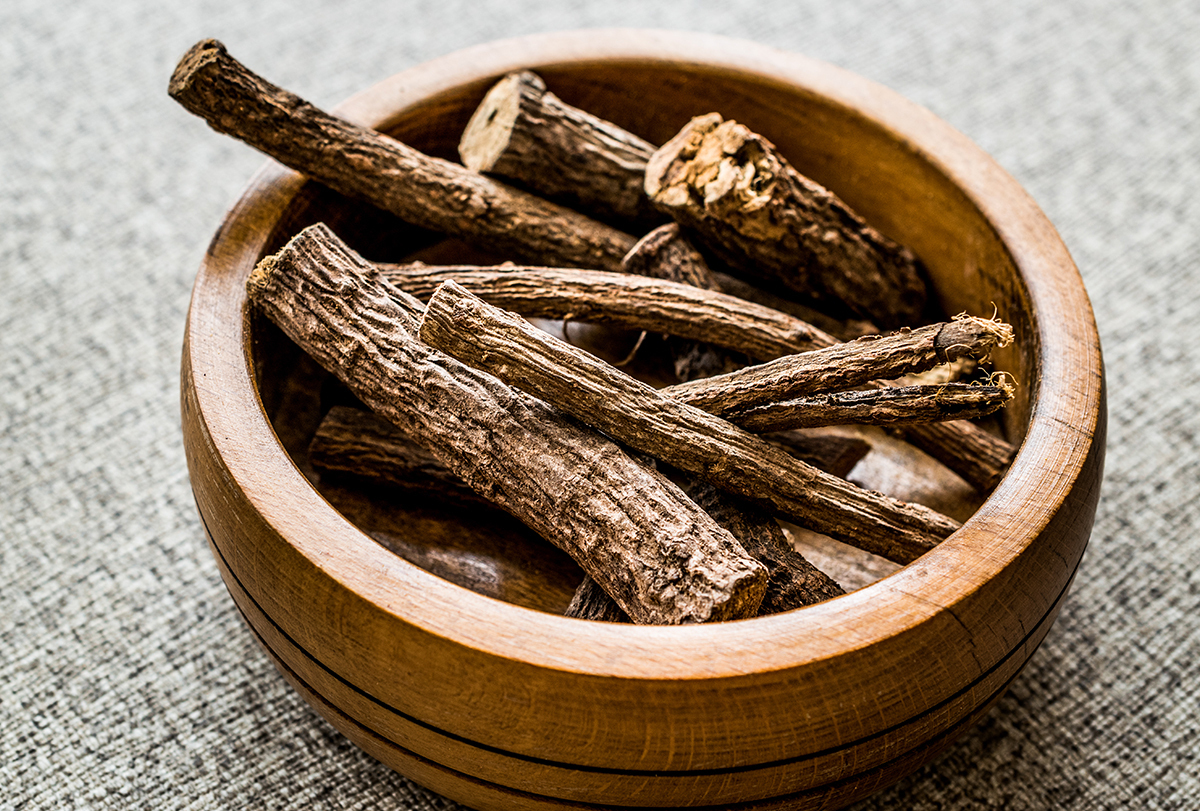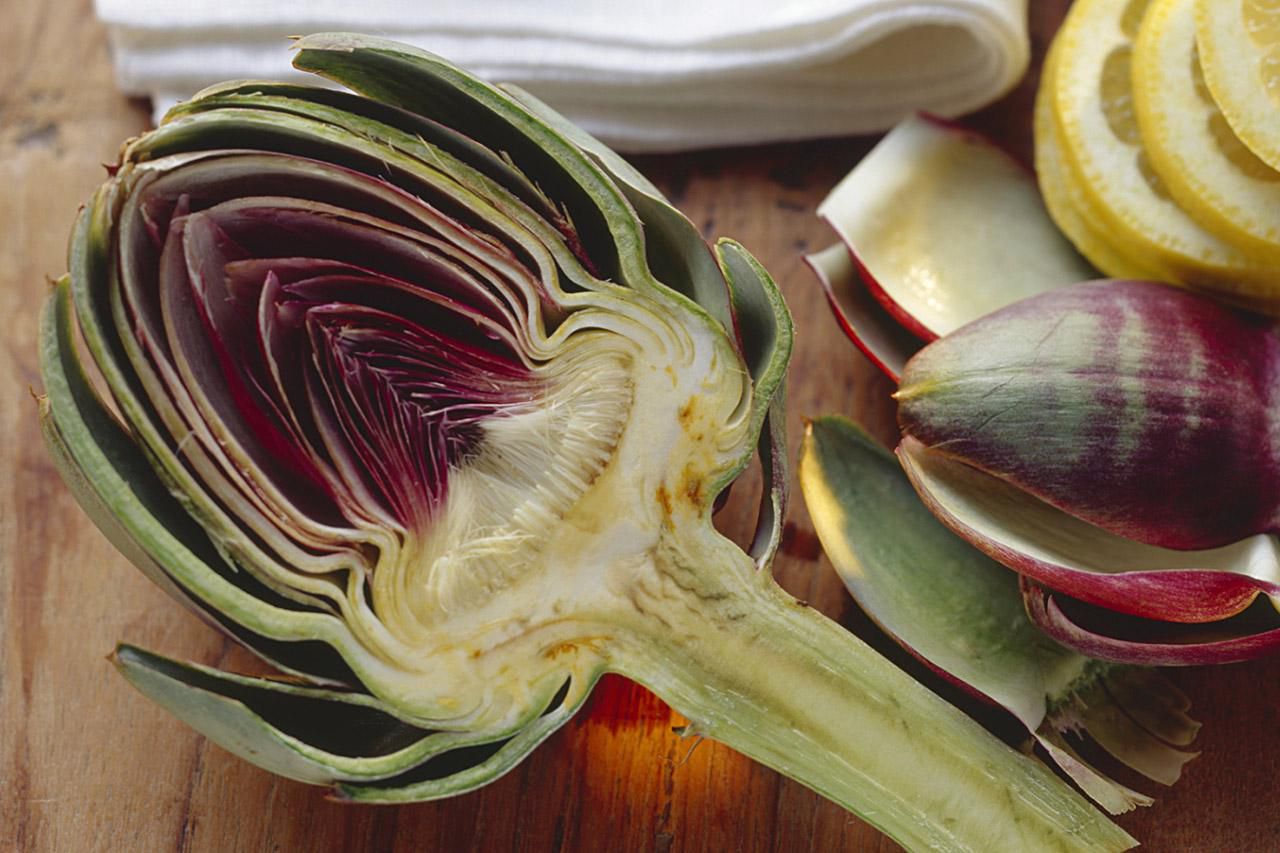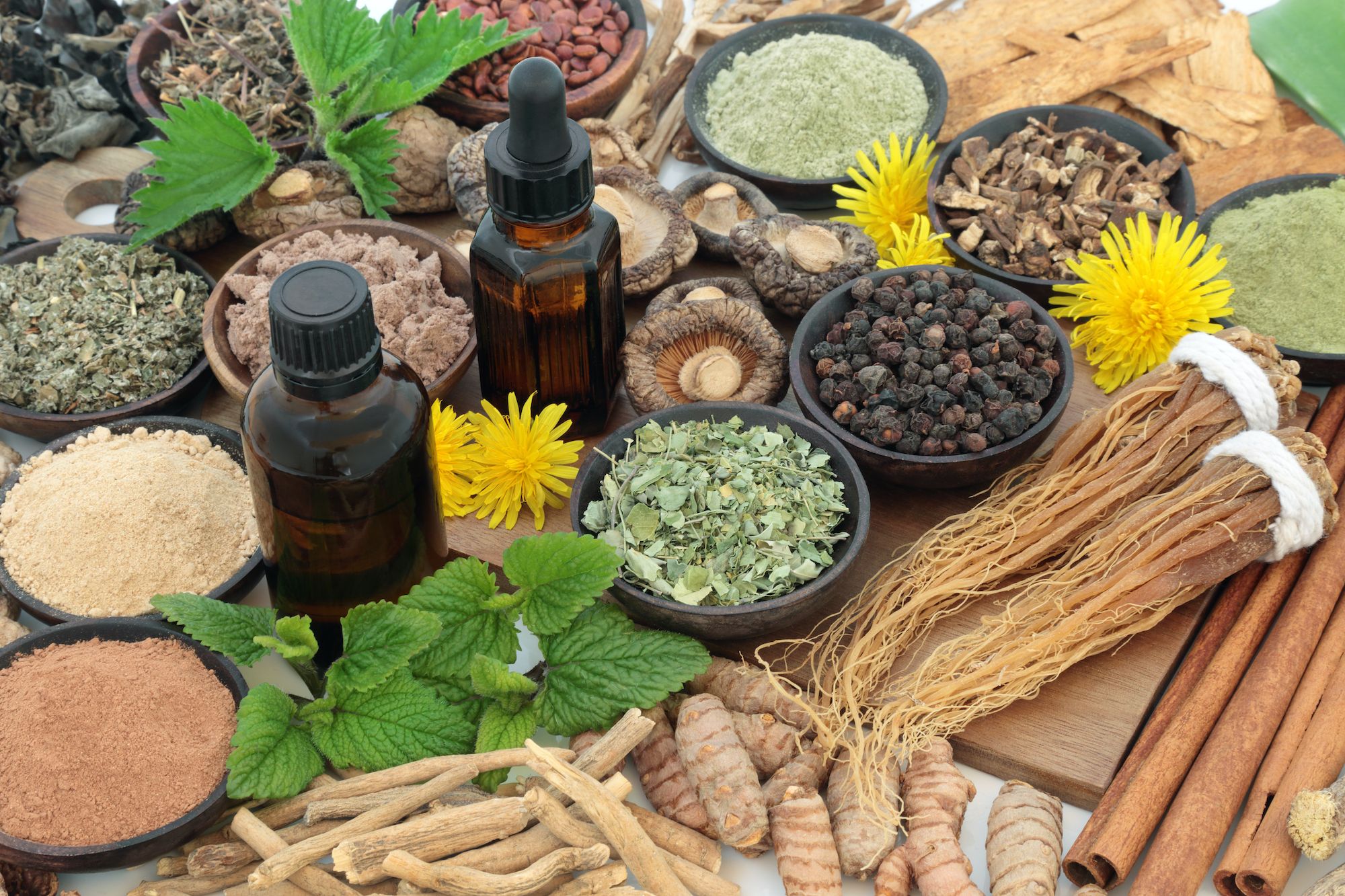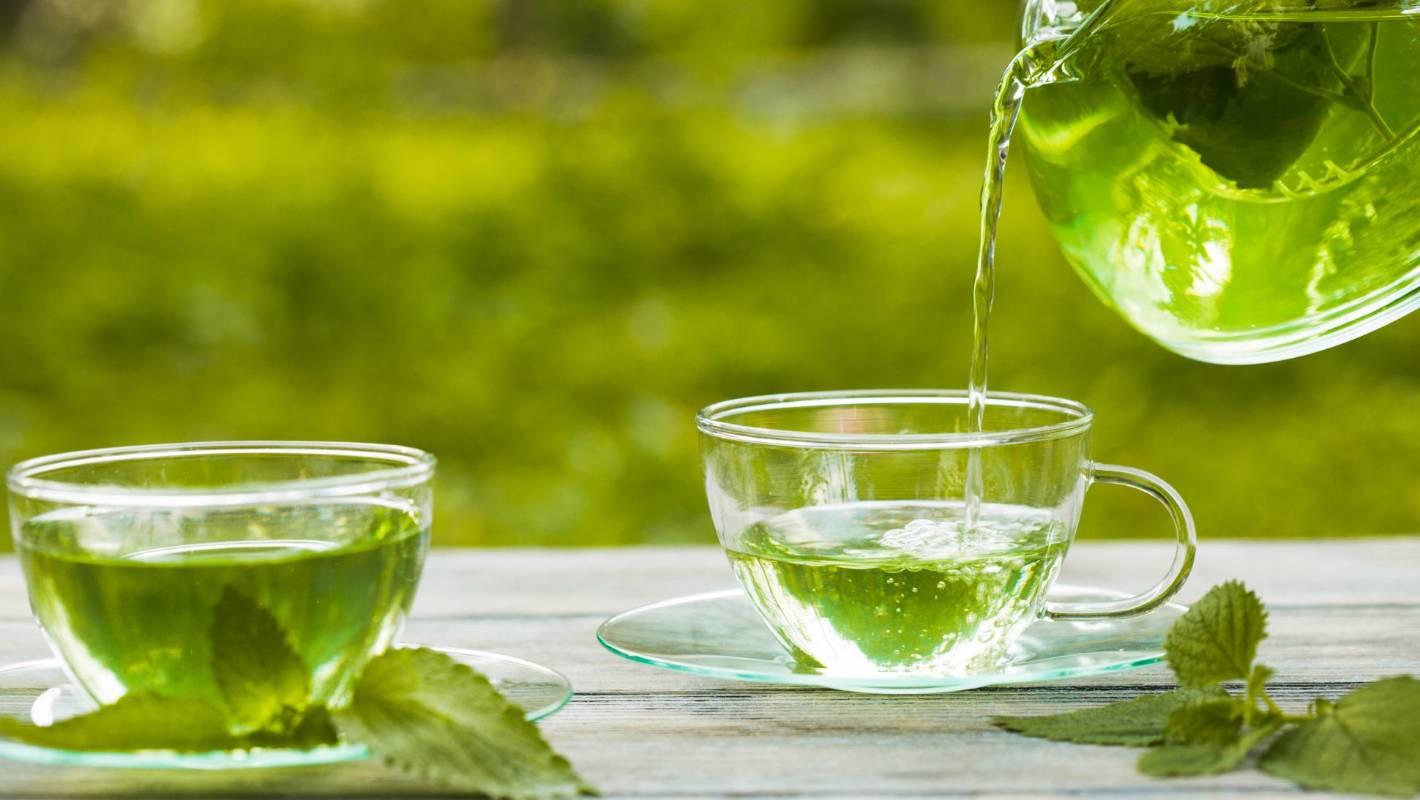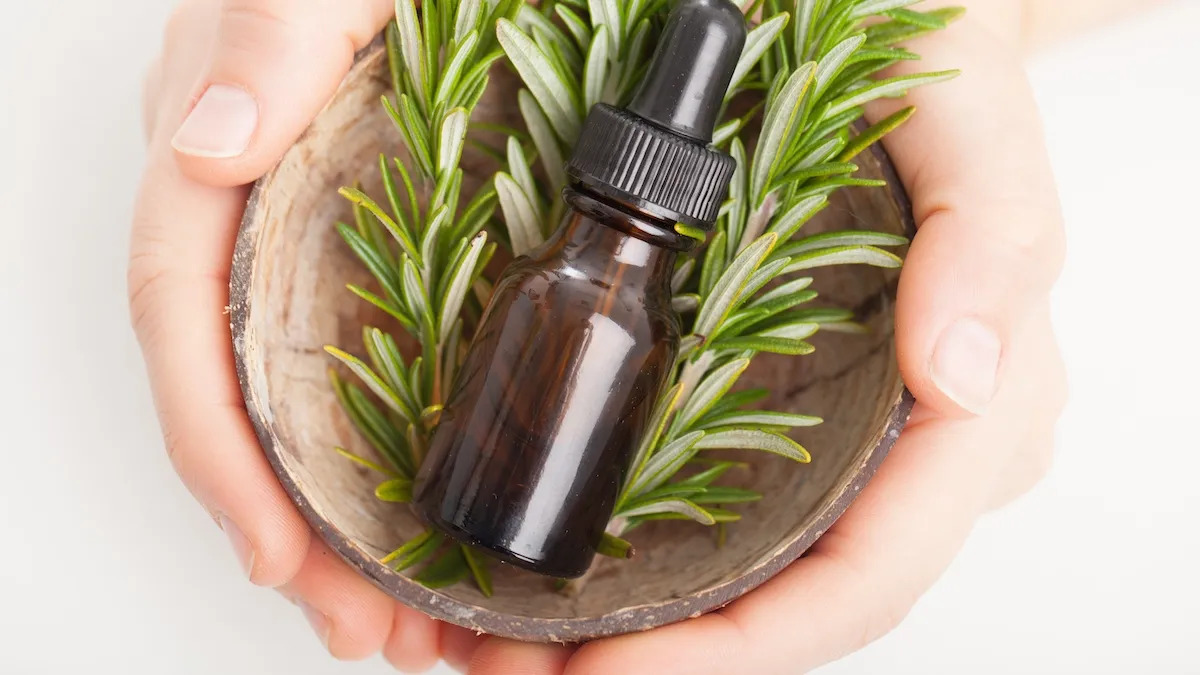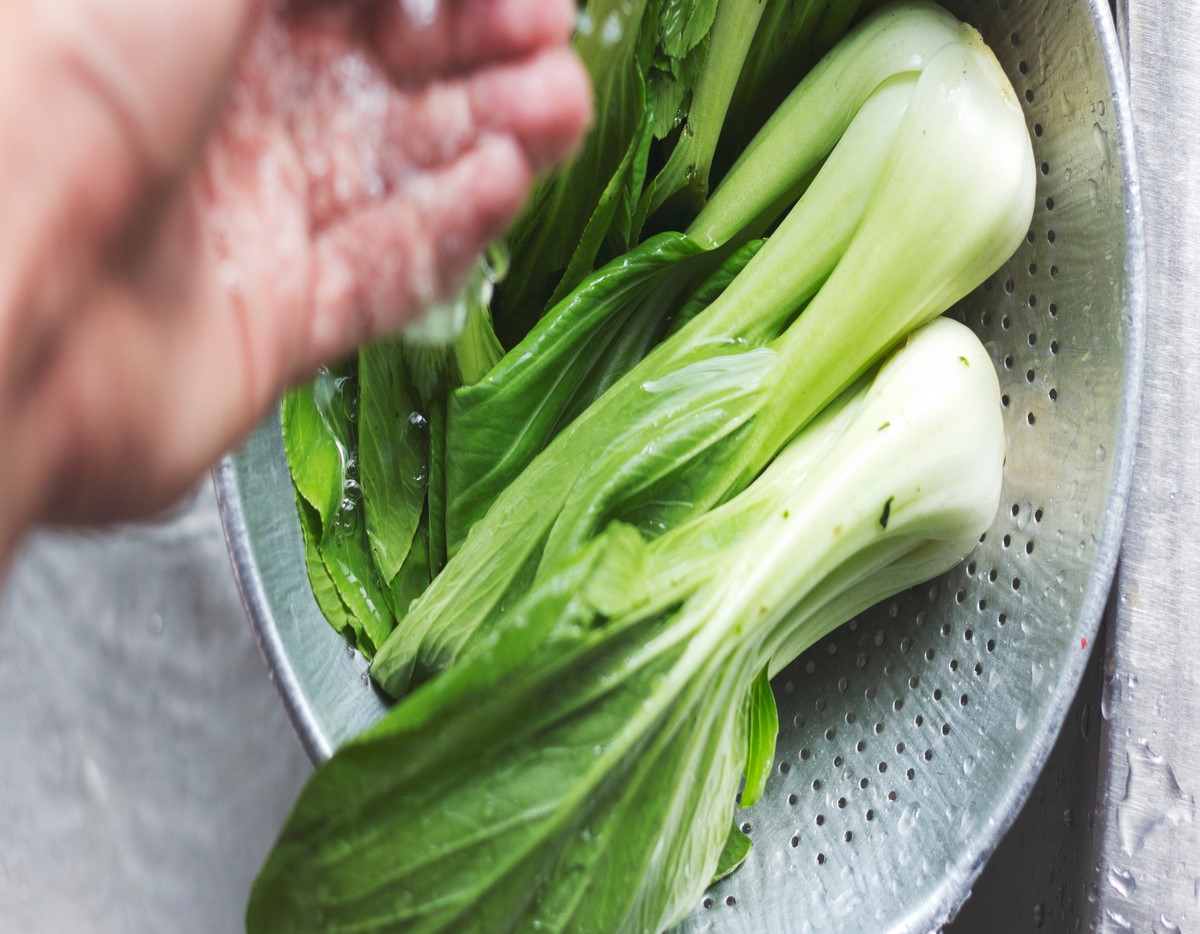Home>Gardening News and Trends>Gardening Trends>What Herbs Help With Diarrhea
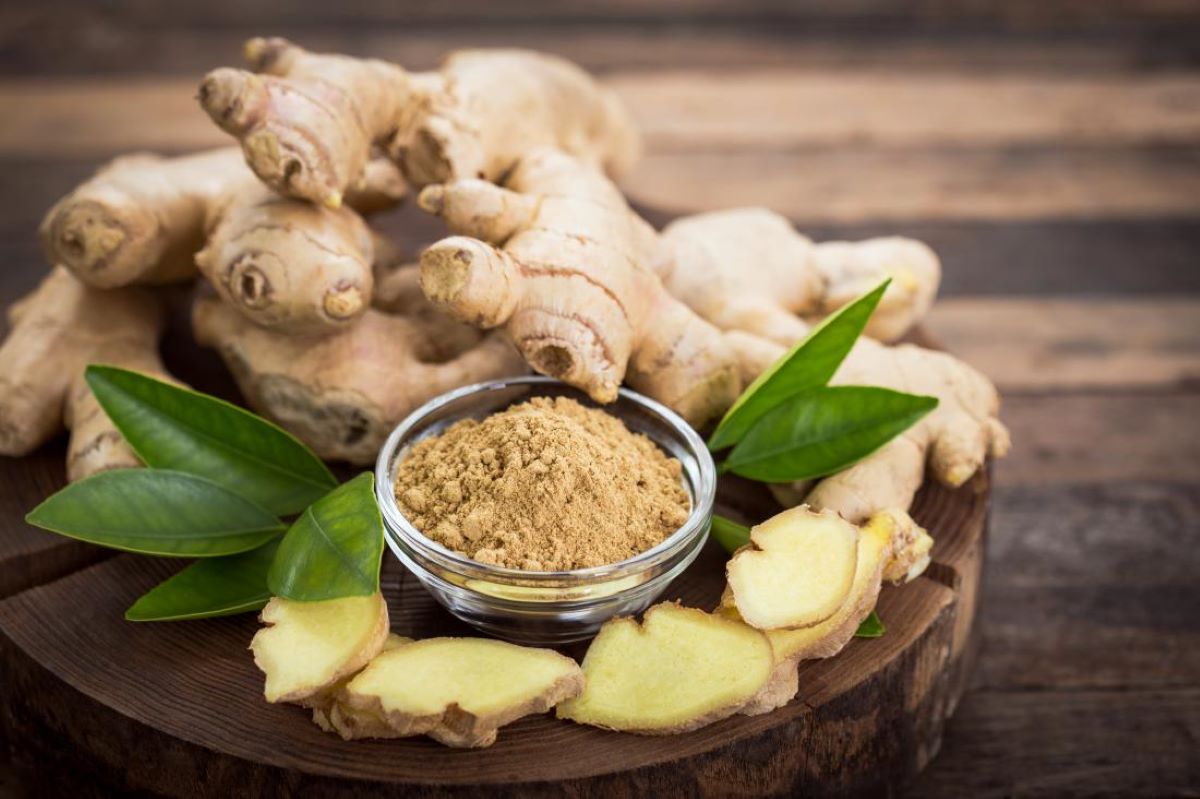

Gardening Trends
What Herbs Help With Diarrhea
Published: September 28, 2023
Explore the latest gardening trends and discover which herbs can effectively help with diarrhea. Enhance your knowledge and find natural remedies for digestive health.
(Many of the links in this article redirect to a specific reviewed product. Your purchase of these products through affiliate links helps to generate commission for Chicagolandgardening.com, at no extra cost. Learn more)
Table of Contents
Introduction
When it comes to gardening, there is always something new and exciting happening in the world of plants and flowers. Gardening trends are constantly evolving, influenced by factors such as climate change, sustainability, and the desire for natural solutions to everyday problems.
One particular area of gardening that has gained significant attention in recent years is the use of herbs for various health benefits. From treating common ailments to promoting overall well-being, herbs have become a staple in many gardens and kitchens around the world.
One health concern that affects people of all ages is diarrhea. Whether caused by an infection, food intolerance, or digestive issues, diarrhea can be incredibly uncomfortable and disruptive to daily life. While there are over-the-counter medications available to alleviate symptoms, many individuals are turning to herbal remedies for a more natural approach.
In this article, we will explore some of the top herbs that have been found to help with diarrhea, their benefits, and how to incorporate them into your gardening and daily routine. From soothing digestive discomfort to reducing inflammation, these herbs can offer relief and support overall gut health.
Before we dive into the specific herbs, it’s important to note that herbal remedies should not replace medical advice or prescribed medications. If you have persistent or severe diarrhea, it is always best to consult with a healthcare professional.
Causes of Diarrhea
Diarrhea is a condition characterized by loose, watery stools that occur more frequently than usual. It can be caused by various factors, including:
- Viruses: One of the most common causes of diarrhea is viral infections, such as the norovirus or rotavirus. These viruses are highly contagious and can spread easily from person to person.
- Bacterial Infections: Certain strains of bacteria, such as Salmonella or E. coli, can cause diarrhea when ingested through contaminated food or water.
- Food Intolerance: Some individuals may experience diarrhea as a result of consuming foods that their bodies cannot tolerate. Common culprits include lactose (found in dairy products), gluten (found in wheat, barley, and rye), or certain artificial sweeteners.
- Medications: Certain medications, such as antibiotics, can disrupt the natural balance of bacteria in the gut and lead to diarrhea as a side effect.
- Digestive Disorders: Chronic conditions such as irritable bowel syndrome (IBS), inflammatory bowel disease (IBD), or celiac disease can cause recurrent bouts of diarrhea.
- Stress and Anxiety: Emotional stress and anxiety can trigger changes in the digestive system, leading to diarrhea in some individuals.
Understanding the underlying causes of diarrhea is important in order to determine the most appropriate treatment or prevention methods. While some cases of diarrhea may resolve on their own, others may require medical intervention.
If diarrhea persists for more than a few days, or if it is accompanied by severe abdominal pain, fever, or bloody stools, it is crucial to seek medical attention as these may indicate a more serious underlying condition.
Common Symptoms of Diarrhea
Diarrhea can present with a variety of symptoms, which may vary in severity depending on the underlying cause. Some common signs and symptoms of diarrhea include:
- Loose, watery stools: Diarrhea is characterized by loose and unformed stools, which may be accompanied by an increased frequency of bowel movements.
- Abdominal cramping: Many individuals with diarrhea experience abdominal cramps or discomfort. These cramps can range from mild to severe and may be accompanied by bloating or gas.
- Nausea and vomiting: In some cases, diarrhea may be accompanied by feelings of nausea or the urge to vomit. This is particularly common in cases of viral or bacterial infections.
- Fever: Certain types of diarrhea, such as those caused by infections, may be associated with a mild to moderate fever.
- Dehydration: Diarrhea can lead to fluid loss, which can result in dehydration. Signs of dehydration may include increased thirst, dry mouth, decreased urine output, and fatigue.
- Weakness and fatigue: Chronic or severe cases of diarrhea can lead to feelings of weakness and fatigue, as the body becomes depleted of essential nutrients and loses electrolytes.
- Blood in stool: While rare, blood in the stool may occur in certain cases of diarrhea, such as those caused by more serious gastrointestinal conditions.
It is important to note that not all cases of diarrhea will include every symptom listed above. The severity and duration of symptoms can vary depending on the underlying cause and individual factors.
If you experience persistent or severe symptoms of diarrhea, or if your symptoms worsen over time, it is recommended to consult with a healthcare professional for an accurate diagnosis and appropriate treatment.
Herbal Remedies for Diarrhea
When it comes to managing diarrhea, herbal remedies can offer natural and gentle solutions. These herbs have been traditionally used for centuries and have gained popularity for their therapeutic properties. Here are some of the top herbal remedies for diarrhea:
-
Ginger
Ginger has long been used for its digestive benefits, including soothing the stomach and relieving nausea. It contains compounds that have anti-inflammatory and antimicrobial properties, making it effective in reducing inflammation in the gut caused by diarrhea.
-
Peppermint
Peppermint is known for its calming effects on the gastrointestinal system. It can help relax the muscles of the intestines, relieving cramps and reducing the frequency of bowel movements. Peppermint tea or oil can be used to alleviate the symptoms of diarrhea.
-
Chamomile
Chamomile is often used for its calming properties and is a popular remedy for digestive issues. It can help soothe the stomach and reduce inflammation in the gut. Chamomile tea is a gentle and effective way to ease diarrhea symptoms.
-
Turmeric
Turmeric is a powerful anti-inflammatory herb that can help reduce intestinal inflammation caused by diarrhea. It also has antimicrobial properties that can combat harmful bacteria in the gut. Adding turmeric powder to warm water or incorporating it into meals can help alleviate diarrhea symptoms.
-
Slippery Elm
Slippery elm is a demulcent herb that forms a soothing gel when mixed with water. It coats the lining of the digestive tract, providing relief from inflammation and reducing diarrhea symptoms. Slippery elm supplements or teas can be beneficial in managing diarrhea.
-
Blackberry Root
Blackberry root has astringent properties, which means it can help reduce excessive fluid loss in the intestines. It also helps to firm up loose stools and alleviate diarrhea symptoms. Blackberry root can be consumed as a tea or taken in supplement form.
-
Fennel Seeds
Fennel seeds have carminative and antispasmodic properties, making them useful in relieving digestive discomfort associated with diarrhea. Chewing on a teaspoon of fennel seeds or brewing them into tea can help soothe the digestive system and alleviate diarrhea symptoms.
-
Marshmallow Root
Marshmallow root is another demulcent herb that can provide relief to the digestive system. It forms a protective layer in the intestines, reducing inflammation and alleviating diarrhea symptoms. Marshmallow root tea or supplements can be beneficial in managing diarrhea.
-
Goldenseal
Goldenseal is a potent herb with antimicrobial properties that can help combat bacterial or parasitic infections that may cause diarrhea. It also has anti-inflammatory effects, reducing intestinal inflammation. Goldenseal capsules or tinctures can be used to manage diarrhea.
-
Lemon Balm
Lemon balm is known for its calming properties and can help reduce stress-related diarrhea. It has antispasmodic effects, reducing muscle contractions in the intestines and alleviating diarrhea symptoms. Lemon balm tea or extracts can be beneficial in managing diarrhea.
These herbal remedies can be taken in various forms, such as teas, capsules, tinctures, or added to foods and beverages. It is essential to follow the recommended dosages and consult with a healthcare professional or herbalist before incorporating any new herbal remedies, especially if you have pre-existing health conditions or are taking medications.
Remember that while herbal remedies can be effective in relieving diarrhea symptoms, they should not replace medical advice or prescribed medications. If your diarrhea persists, worsens, or is accompanied by severe symptoms, it is important to seek medical attention for a proper diagnosis and treatment.
Ginger
Ginger is a well-known herb that has been used for centuries for its medicinal properties. When it comes to managing diarrhea, ginger is highly regarded for its soothing and anti-inflammatory effects on the digestive system.
The active compounds in ginger, such as gingerol and shogaol, have been found to reduce inflammation in the intestines and inhibit the growth of harmful bacteria that can contribute to diarrhea. These compounds also help alleviate nausea and vomiting, which are common symptoms associated with diarrhea.
Ginger can be consumed in various forms to help manage diarrhea symptoms. One popular method is to make ginger tea by steeping fresh ginger slices in boiling water for about 10 minutes. Drinking this tea throughout the day can help calm the digestive system and reduce diarrhea-related discomfort.
Another option is to incorporate ginger into your meals by adding grated or chopped ginger to soups, stir-fries, or smoothies. This not only adds a burst of flavor but also provides the beneficial compounds to help alleviate diarrhea symptoms.
If you prefer a more convenient option, ginger supplements or capsules are available in health stores. However, it’s important to follow the recommended dosage and consult with a healthcare professional before taking any new supplements.
While ginger is generally safe for most people, it may interact with certain medications or have contraindications for individuals with specific health conditions. Consultation with a healthcare professional is especially important if you are pregnant, nursing, or have any underlying medical conditions.
It’s worth noting that ginger is not a cure for diarrhea, especially in cases of severe or persistent diarrhea. If your symptoms worsen or do not improve after a few days of trying ginger remedies, it is crucial to seek medical attention for a proper diagnosis and appropriate treatment.
Peppermint
Peppermint is a widely recognized herb that offers a range of health benefits, including its efficacy in managing digestive issues like diarrhea. Peppermint contains essential oils, notably menthol, which impart a cooling sensation and have a calming effect on the gastrointestinal tract.
One of the primary benefits of peppermint for diarrhea is its ability to relax the smooth muscles in the intestines, reducing spasms and cramping. This can help alleviate abdominal discomfort and reduce the frequency of bowel movements.
Peppermint tea is a popular way to consume this herb for digestive relief. Simply steep dried peppermint leaves in hot water for 5-10 minutes, strain, and enjoy. Sipping on warm peppermint tea throughout the day can provide soothing effects for a troubled digestive system.
In addition to tea, peppermint oil capsules or enteric-coated peppermint oil capsules are available as a more concentrated and convenient option. These capsules bypass the stomach and dissolve further down in the intestines, providing targeted relief for gastrointestinal symptoms, including diarrhea.
It’s important to note that while peppermint is generally safe for most individuals, it can interact with certain medications, such as antacids or medications for acid reflux. It may also cause heartburn or aggravate symptoms for individuals with gastroesophageal reflux disease (GERD).
Additionally, peppermint oil capsules should not be given to young children, as it may cause serious side effects. Always consult with a healthcare professional before using peppermint, especially if you have any underlying medical conditions or are taking medications.
While peppermint can be a valuable herbal remedy for managing diarrhea, it is not a substitute for medical advice. If diarrhea persists or worsens, or if you experience severe symptoms such as fever or dehydration, it is essential to seek medical attention for a proper diagnosis and appropriate treatment.
Chamomile
Chamomile, known for its calming properties, is another herb that can be beneficial in managing diarrhea. Chamomile contains compounds such as bisabolol and chamazulene, which possess anti-inflammatory and antispasmodic effects on the gastrointestinal system.
One of the primary benefits of chamomile for diarrhea is its ability to soothe the stomach and reduce inflammation in the gut. This can help alleviate abdominal pain and discomfort associated with diarrhea and promote overall digestive comfort.
Chamomile tea is the most common and accessible form of consuming chamomile for diarrhea relief. Simply steep chamomile flowers in hot water for about 5 minutes, strain, and enjoy. Drinking chamomile tea can help relax the muscles of the intestines and reduce the frequency of bowel movements.
In addition to its anti-inflammatory and calming effects, chamomile also has mild antimicrobial properties, which can help combat the harmful bacteria that may contribute to diarrhea.
It’s important to note that while chamomile is generally considered safe for most individuals, it may cause allergic reactions in those with known allergies to plants such as ragweed or daisies. If you have any known allergies, it is best to exercise caution or consult with a healthcare professional before using chamomile.
Moreover, if you are pregnant or breastfeeding, it is advisable to consult with a healthcare professional before incorporating chamomile into your routine, as there is limited research on its safety during these periods.
While chamomile can provide relief for mild and occasional diarrhea symptoms, it is not a substitute for medical advice. If your symptoms persist, worsen, or are accompanied by severe symptoms such as persistent high fever or severe dehydration, it is important to seek medical attention for a proper diagnosis and appropriate treatment.
Turmeric
Turmeric, a vibrant spice commonly used in Indian cuisine, has gained significant attention for its potent medicinal properties, including its potential benefits in managing diarrhea. The active compound in turmeric, called curcumin, has powerful anti-inflammatory and antimicrobial properties that can help alleviate diarrhea symptoms.
One of the primary benefits of turmeric for diarrhea is its ability to reduce inflammation in the intestines. Diarrhea often involves inflammation in the gastrointestinal tract, leading to increased bowel movements and loose stools. Curcumin can inhibit pro-inflammatory molecules and help soothe the inflamed gut, resulting in a reduction in diarrhea symptoms.
Additionally, turmeric has antimicrobial effects, which means it can combat harmful bacteria, parasites, or other pathogens that may be causing diarrhea.
One way to incorporate turmeric into your diet to help manage diarrhea is by adding turmeric powder to warm water or herbal teas. You can also use turmeric as a spice in cooking, adding it to soups, stews, curries, or stir-fries.
If you prefer a more concentrated form, turmeric supplements or capsules are available. However, it’s important to follow the recommended dosage and consult with a healthcare professional before starting any new supplements, especially if you have any underlying health conditions or are taking medications.
It’s worth noting that turmeric may interact with certain medications, such as blood thinners or medications for diabetes. If you are on any medications, it is advisable to consult with a healthcare professional before incorporating turmeric into your routine.
While turmeric can provide relief for mild to moderate diarrhea symptoms, it is not a substitute for medical advice. If your symptoms persist, worsen, or are accompanied by severe symptoms such as high fever or severe dehydration, it is important to seek medical attention for proper evaluation and appropriate treatment.
Slippery Elm
Slippery Elm, also known as Ulmus rubra, is a herb that has been used for centuries in traditional medicine to treat various ailments, including gastrointestinal issues such as diarrhea. The inner bark of the slippery elm tree contains mucilage, a gel-like substance that becomes slippery and soothing when mixed with water.
Slippery Elm is known for its demulcent properties, making it an excellent natural remedy for soothing the digestive system and reducing inflammation in the gut. When consumed, the mucilage coats the lining of the intestines, providing a protective barrier that can help alleviate diarrhea symptoms.
This herb can be found in various forms, including powder, capsules, lozenges, or teas. Slippery Elm powder can be mixed with water to create a soothing drink, or it can be added to foods such as yogurt or smoothies.
When using slippery elm for diarrhea relief, it’s important to take it with plenty of water to ensure optimal absorption and effectiveness. Following the recommended dosage is crucial, and consulting with a healthcare professional or herbalist is advisable, particularly if you have any underlying health conditions or are taking medications.
While slippery elm is generally safe for most individuals, it may cause allergic reactions in some people. If you experience any adverse reactions, such as itching, swelling, or difficulty breathing, discontinue use and seek medical attention immediately.
It’s important to note that slippery elm is not a cure for diarrhea, particularly in cases of severe or prolonged diarrhea. If your symptoms worsen or persist, or if you experience severe dehydration or other concerning symptoms, it is crucial to seek medical advice for a proper diagnosis and appropriate treatment.
Blackberry Root
Blackberry root, derived from the common blackberry plant, is a traditional herbal remedy that has been used for centuries to address various health issues, including diarrhea. Blackberry root is known for its astringent properties, which means it can help reduce excessive fluid loss in the intestines and firm up loose stools.
The astringent properties of blackberry root make it particularly effective in managing diarrhea by decreasing the frequency and liquidity of bowel movements. By tightening the intestinal tissues, blackberry root can help alleviate diarrhea symptoms and promote a more balanced digestive function.
Blackberry root can be consumed in the form of tea. To make blackberry root tea, steep a teaspoon of dried blackberry root in a cup of hot water for about 10 minutes. Strain the tea and enjoy it warm. Drinking blackberry root tea throughout the day can provide relief from diarrhea symptoms.
In addition to its potential benefits for managing diarrhea, blackberry root is also rich in antioxidants and vitamins, offering additional health benefits for overall well-being.
However, it’s important to note that blackberry root should be used with caution, especially for individuals with specific health conditions. If you have a history of medical conditions or are taking medications, it is recommended to consult with a healthcare professional or herbalist before using blackberry root.
Furthermore, if you experience any allergic reactions or adverse effects, such as itching, swelling, or difficulty breathing, discontinue use immediately and seek medical attention.
While blackberry root can be a natural remedy for mild cases of diarrhea, it is not a substitute for medical advice. If your symptoms persist, worsen, or are accompanied by severe symptoms such as high fever or dehydration, it is important to seek medical attention for a proper diagnosis and appropriate treatment.
Fennel Seeds
Fennel seeds, derived from the Foeniculum vulgare plant, have long been used as a natural remedy for various digestive issues, including diarrhea. Fennel seeds contain compounds that have carminative and antispasmodic properties, making them effective in relieving digestive discomfort associated with diarrhea.
The carminative properties of fennel seeds help to relax the muscles of the gastrointestinal tract, reducing cramping and bloating. This can provide relief from abdominal discomfort and help regulate bowel movements.
One of the simplest ways to use fennel seeds for managing diarrhea is to chew on a teaspoon of whole fennel seeds after meals. This not only aids digestion but also helps alleviate diarrhea symptoms.
Another option is to brew fennel seeds into a tea. To make fennel seed tea, crush a teaspoon of fennel seeds and steep them in a cup of hot water for about 10 minutes. Strain the mixture and enjoy the warm tea. Drinking fennel seed tea several times a day can help soothe the digestive system and alleviate diarrhea symptoms.
Fennel seeds are generally safe for most individuals when consumed in moderate amounts. However, some individuals may have allergies or sensitivities to fennel. If you experience any adverse reactions, such as itching, rash, or difficulty breathing, discontinue use and seek medical attention.
It’s important to note that while fennel seeds can provide relief for mild cases of diarrhea, they do not address the underlying cause. If your symptoms persist, worsen, or are accompanied by severe symptoms such as persistent high fever, severe abdominal pain, or dehydration, it is important to seek medical attention for a proper diagnosis and appropriate treatment.
Marshmallow Root
Marshmallow root, derived from the Althaea officinalis plant, is a herb known for its soothing and demulcent properties. This makes it a beneficial herbal remedy for managing diarrhea and related digestive discomfort.
The demulcent properties of marshmallow root are attributed to its high mucilage content. When mixed with water, the mucilage forms a gel-like substance that coats and soothes the lining of the digestive tract. This protective barrier can help reduce inflammation and alleviate diarrhea symptoms.
Marshmallow root can be consumed as a tea by steeping about a teaspoon of dried root in a cup of hot water for approximately 10 minutes. Strain the tea and drink it warm. You can enjoy several cups of marshmallow root tea throughout the day to help calm the digestive system and relieve diarrhea symptoms.
In addition to its potential benefits for managing diarrhea, marshmallow root is also known for its potential anti-inflammatory effects and its ability to promote overall gastrointestinal health.
It’s important to note that marshmallow root may interfere with the absorption of other medications. Therefore, it is advisable to consult with a healthcare professional or herbalist before using marshmallow root, especially if you are taking any medications or have underlying health conditions.
While marshmallow root can provide relief for mild cases of diarrhea, it is not a substitute for medical advice. If your symptoms persist, worsen, or are accompanied by severe symptoms such as high fever or severe dehydration, it is important to seek medical attention for a proper diagnosis and appropriate treatment.
Goldenseal
Goldenseal, scientifically known as Hydrastis canadensis, is an herb native to North America that has been used for centuries in traditional medicine. It is renowned for its antimicrobial and anti-inflammatory properties, making it a valuable herbal remedy for managing various gastrointestinal issues, including diarrhea.
One of the primary benefits of goldenseal for diarrhea is its ability to combat harmful bacteria, parasites, or other pathogens that can cause or contribute to diarrhea. Goldenseal contains a compound called berberine, which has been shown to have broad-spectrum antimicrobial activity, including against common intestinal pathogens.
Moreover, goldenseal has anti-inflammatory effects that can help reduce inflammation in the gut and alleviate diarrhea symptoms. By reducing inflammation, goldenseal can promote a more balanced and healthy digestive system.
Goldenseal can be consumed in various forms, including capsules, powders, or tinctures. However, it is important to note that goldenseal should be used with caution and under the guidance of a healthcare professional or herbalist. It is crucial to follow the recommended dosage and duration of use, as using goldenseal excessively or for prolonged periods can lead to potential side effects.
Additionally, goldenseal may interact with certain medications, such as blood thinners or medications for high blood pressure. It is important to consult with a healthcare professional before using goldenseal, especially if you have any underlying health conditions or are taking medications.
While goldenseal can be a beneficial herbal remedy for mild cases of diarrhea, it is not a substitute for medical advice. If your symptoms persist, worsen, or are accompanied by severe symptoms such as high fever or dehydration, it is important to seek medical attention for a proper diagnosis and appropriate treatment.
Lemon Balm
Lemon balm, also known as Melissa officinalis, is an aromatic herb that belongs to the mint family. It has been used for centuries in traditional medicine for its calming and soothing properties. Lemon balm is not only cherished for its lovely fragrance but also valued for its potential benefits in managing digestive issues, including diarrhea.
One of the primary benefits of lemon balm for diarrhea is its ability to relax the muscles of the gastrointestinal tract. The volatile oils present in lemon balm, such as citral and citronellal, possess antispasmodic effects, reducing intestinal cramping and discomfort associated with diarrhea.
Lemon balm is also known for its calming effects on the nervous system. Stress and anxiety can exacerbate digestive issues, including diarrhea. The calming properties of lemon balm can help soothe the mind and alleviate stress-related diarrhea.
You can enjoy the benefits of lemon balm by brewing a tea. Simply steep a handful of fresh lemon balm leaves or a teaspoon of dried leaves in hot water for about 10 minutes. Strain the tea and enjoy it warm. Drinking lemon balm tea several times a day can help calm the digestive system and alleviate diarrhea symptoms.
In addition to its potential benefits in managing diarrhea, lemon balm is known for its antioxidant properties and its potential to support healthy digestion and overall well-being.
It’s important to note that lemon balm may cause drowsiness in some individuals. If you are planning to drive or operate heavy machinery, it is advisable to monitor your response to lemon balm and adjust your activities accordingly.
While lemon balm can be a natural remedy for mild cases of diarrhea, it is not a substitute for medical advice. If your symptoms persist, worsen, or are accompanied by severe symptoms such as high fever or severe dehydration, it is important to seek medical attention for a proper diagnosis and appropriate treatment.
Precautions and Considerations
While herbal remedies can offer natural relief for symptoms of diarrhea, it is important to exercise caution and consider certain precautions before using them. Here are some key precautions and considerations to keep in mind:
- Consult with a healthcare professional: Before using any herbal remedies for diarrhea, it is recommended to consult with a healthcare professional or herbalist, especially if you have any underlying health conditions, are pregnant or breastfeeding, or are taking medications. They can provide personalized advice and guidance based on your specific circumstances.
- Quality and sourcing: Ensure that the herbal products you use are from reputable sources and are of high quality. Look for organic certifications or choose reliable brands to ensure purity and safety.
- Dosage and duration: Follow the recommended dosage instructions for each herb and do not exceed the suggested limits. Using excessive amounts or prolonged use of herbal remedies may lead to adverse effects or interactions with medications.
- Possible allergens: Be aware of any potential allergies or sensitivities you may have to specific herbs. Some individuals may experience adverse reactions, such as rashes, itching, or difficulty breathing, when exposed to certain herbs. Discontinue use if any allergic reactions occur and seek medical attention if necessary.
- Medication interactions: Some herbs may interact with certain medications, affecting their efficacy or increasing the risk of side effects. It is crucial to consult with a healthcare professional before using herbal remedies if you are taking any medications.
- Combining herbs: Be cautious when combining different herbs for diarrhea relief. Some herbs may have similar effects or contraindications when used together. It is advisable to seek guidance from a healthcare professional or herbalist to ensure safe and appropriate combinations.
- Underlying conditions: While herbal remedies can provide temporary relief for mild cases of diarrhea, it is important to address any underlying conditions that may be causing the diarrhea. If your symptoms persist, worsen, or are accompanied by severe symptoms, it is essential to seek medical attention for a proper diagnosis and appropriate treatment.
- Hydration: Diarrhea can lead to fluid loss and dehydration. It is crucial to stay hydrated by drinking plenty of fluids, such as water, herbal teas, or rehydration solutions recommended by healthcare professionals.
Remember that herbal remedies for diarrhea should supplement, but not replace, medical advice or prescribed medications. It is always best to seek guidance from healthcare professionals to ensure safe and effective management of diarrhea.
Conclusion
In conclusion, herbal remedies can offer natural and gentle solutions for managing diarrhea. The herbs mentioned, including ginger, peppermint, chamomile, turmeric, slippery elm, blackberry root, fennel seeds, marshmallow root, goldenseal, and lemon balm, have been traditionally used for their soothing, anti-inflammatory, antimicrobial, and antispasmodic properties.
These herbs can provide relief from diarrhea symptoms such as loose stools, abdominal cramping, and discomfort. They can help reduce inflammation in the gut, combat harmful bacteria, promote proper digestion, and support overall gastrointestinal health.
It is important to note that while herbal remedies can provide temporary relief, they should not replace medical advice or prescribed medications. If you experience persistent or severe diarrhea, it is crucial to seek medical attention for a proper diagnosis and appropriate treatment.
When using herbal remedies for diarrhea, it is important to follow the recommended dosages, consider any precautions or contraindications, and consult with a healthcare professional or herbalist, especially if you have underlying health conditions, are pregnant or breastfeeding, or are taking medications.
Furthermore, maintaining hydration is vital during episodes of diarrhea. Drinking plenty of fluids and rehydration solutions recommended by healthcare professionals can help replace lost fluids and electrolytes.
Gardening trends in the realm of herbal medicine continue to evolve, and incorporating herbs into your garden can provide you access to fresh and potent ingredients for managing diarrhea and promoting overall well-being.
Remember, the information provided in this article serves as a general guide and is not intended as specific medical advice. It is always advisable to consult with a healthcare professional for personalized recommendations regarding your health and the use of herbal remedies for diarrhea.
